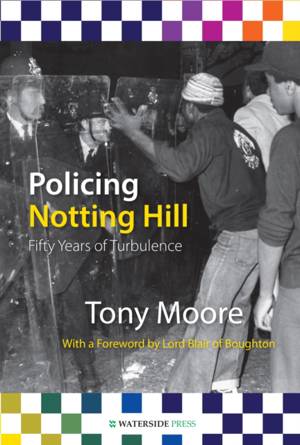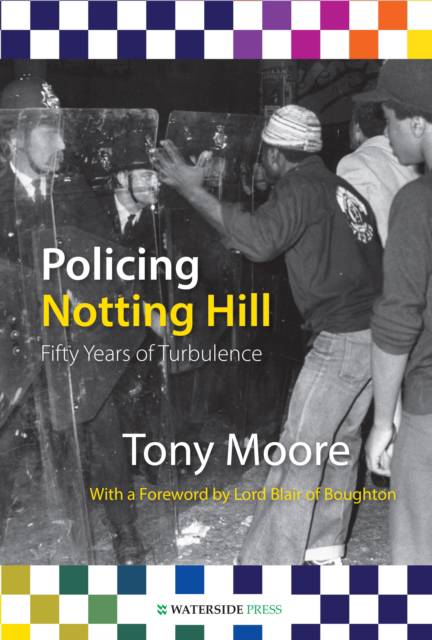
- Afhalen na 1 uur in een winkel met voorraad
- Gratis thuislevering in België vanaf € 30
- Ruim aanbod met 7 miljoen producten
- Afhalen na 1 uur in een winkel met voorraad
- Gratis thuislevering in België vanaf € 30
- Ruim aanbod met 7 miljoen producten
Zoeken
€ 60,95
+ 121 punten
Omschrijving
Notting Hill is one of the most sought after locations in London. But its progress from 'ghetto' to gentrification spans a time when it was one of the most turbulent places in Britain. Plagued by racial tensions, unsolved killings, drugs, prostitution, no-go areas and riots, it was populated by some intriguing and challenging characters as well as being the venue for an iconic, sometimes disorderly, annual Carnival. Based on first-hand knowledge, prodigious research and hitherto unpublished sources, Policing Notting Hill also records Tony Moore's time as Divisional Commander at what Roger Graef described in the Evening Standard as the most widely publicised 'nick' in Britain. 'Tony Moore is well-fitted to write a history of Notting Hill and its relationship with the Metropolitan Police': Lord Blair of Boughton. 'All Saints Road in Notting Hill is one of those areas of London where crime is at its worst, where drug-dealing is intolerably overt and where the racial ingredient is at its most potent': Sir Kenneth Newman. 'From the late sixties until recently, All Saints Road was to drugs what Hatton Garden is to diamonds': Robert Hardman, The Spectator. A masterly account of policing, partnership and social change.
Specificaties
Betrokkenen
- Auteur(s):
- Uitgeverij:
Inhoud
- Aantal bladzijden:
- 414
- Taal:
- Engels
Eigenschappen
- Productcode (EAN):
- 9781904380610
- Verschijningsdatum:
- 1/07/2013
- Uitvoering:
- Paperback
- Formaat:
- Trade paperback (VS)
- Afmetingen:
- 156 mm x 234 mm
- Gewicht:
- 576 g

Alleen bij Standaard Boekhandel
+ 121 punten op je klantenkaart van Standaard Boekhandel
Beoordelingen
We publiceren alleen reviews die voldoen aan de voorwaarden voor reviews. Bekijk onze voorwaarden voor reviews.











